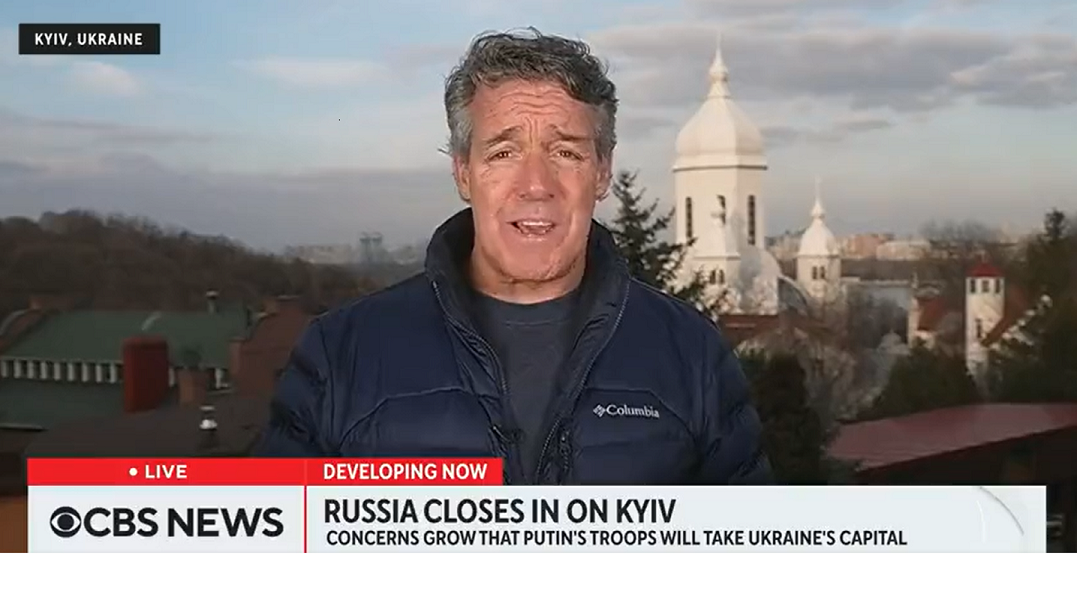War has returned to Europe after decades of nearly uninterrupted peace and stability. Armed with ‘Buratino’ flamethrower systems and self-righteous conviction, Vladimir Putin’s Russia has launched an invasion on neighbouring Ukraine, directing the ultimate challenge at its sovereignty. With Russia’s nuclear forces on ‘special alert,’ the world positions itself along the fault lines of interests and alliances, responding to what many believe to be Europe’s biggest conflict since the second World War.
The world over, the response to this crisis has picked apart its details, from the leadup to the attack to recent talks between Russia and Ukraine in neighbouring Belarus. Many countries have condemned Russia’s actions, and the West has shown Ukraine unreserved support by imposing economic sanctions, bans, and boycotts on Russia, as well as sending arms to back the Ukrainian cause.
These stances have elicited mixed reactions from observers in the Arab World. Many commentators, while supportive of the condemnation of Russian aggression and disregard for Ukraine’s right to self-determination, note the contrast between Western countries’ response to this crisis and their responses to comparable crises in the region.
Between decades of Israeli occupation of Palestine, the US invasion of Iraq in 2003, and the refugee crisis of 2015, many are now arguing that the war on Ukraine has exposed a long-standing double standard in how the West, namely Europe and North America, engages with conflicts around the world.
Comparing Crises
Activists from the region and the Global South at large have been vocal in their criticism of this discrepancy, eliciting, in turn, accusations that they are making this comparison to deflect from the current crisis for the benefit of their own causes by way of an argumentation tactic often referred to as ‘whataboutism’.
Berlin-based sociologist Amro Ali took to Twitter to address these accusations, highlighting that comparing crises is not necessarily a problematic practice. Ali explains to Egyptian Streets that whataboutism “is premised on deflecting attention by not answering the question at hand,” and instead pointing out the crimes or failures of another party.
As a rule of thumb, Ali proposes that “if language ends up justifying Putin’s attack,” the comparison would, in fact, amount to the unconstructive and dangerous tactic, justifying a breach of international law and failing to acknowledge the gravity of the conflict currently raging.
“Situations like that require a really clear moral framework, where when you talk about justice, you talk about justice for everyone, and you don’t end up indirectly propping up tyrants,” says Ali.
Despite this warning, Ali and others believe that there is value in striking the iron while it’s hot, and pointing out the double standard while it is at its starkest.
“If we keep avoiding the other theatres of invasions and occupations and wars, then we do an injustice to the conversations,” Ali argues.
“By all means focus on Ukraine, but don’t forget the screaming elephant in the room, the obviousness that needs to be addressed that the international community has a different moral compass towards Palestine as opposed to Ukraine.”
For years, the pro-Palestinian Boycott Divestment and Sanctions (BDS) movement has been calling for nonviolent resistance against Israeli occupation through the elements mentioned in its name, citing the effectiveness of examples such as the cultural boycott of South Africa’s apartheid regime.
The BDS movement has been under fire from many politicians and powerful public figures, mostly in the West, accusing it of being anti-Semitic and for punishing the people of Israel for the actions of its government and military. One commentator accused the movement’s premise of being unjust to single out Israel, whose actions, he argues, are comparable to those of other nations.
Yet, in response to the attack on Ukraine, the consequences being imposed on Russia to pressure it to withdraw are uncannily similar to those proposed by the BDS movement.
“Throwing the book at them now in terms of economic sanctions and punishments is also a part of it,” former US Secretary of State Condoleezza Rice said on Fox News. “And I think the world is there. Certainly NATO is there. [Putin] has managed to unite NATO in ways that I didn’t think I would see again after the Cold War.”
During Rice’s tenure as Secretary of State, the US led invasions against Iraq and Afghanistan. While neither of these two military campaigns are viewed favourably by the world in hindsight, there is worldwide consensus that the Iraq War in particular was entirely unjustified, if not criminal.
Nevertheless, Rice commented in the very same breath that “[invading a sovereign nation] is certainly against every principle of international law and international order.”
We just need to hear it from Bush and Blair and we can call it a day. pic.twitter.com/LWRUqYGkoe
— Halim Shebaya (حليم شبيعة) (@halimshebaya) February 28, 2022
“Civilised” and “European”
The world’s apparently skewed moral compass has not only exposed itself in the response of Western politicians and proposed punishments. The media coverage of the plight of the Ukrainian people suffering from the invasion has also suggested that the West’s sympathy for refugees is conditional. Even some observers in the West noted that the difference in tone may have gone a bridge too far.
Several videos have taken social media platforms by storm, showing European and American reporters and pundits on high profile networks such as BBC, CBS, NBC, and ITV, appealing to the empathy of their viewers by way of referring to Ukrainian victims’ “blue eyes and blond hair,” their being “Christian, white”, “relatively civilised, relatively European,” and mentioning that these events are “not [taking place in] a developing third world nation. This is Europe.”
“What’s compelling is […], these are prosperous, […] middle-class people,” an Aljazeera English anchor went as far as saying earlier this week. “These are not obviously refugees looking to get away from areas in the Middle East that are still in a big state of war. These are not people trying to get away from areas in North Africa. They look like any European family that you would live next door to.”
An op-ed published in the British newspaper The Telegraph read that “Ukraine is a European country. Its people watch Netflix and have Instagram accounts, vote in free elections and read uncensored newspapers. War is no longer something visited upon impoverished and remote populations. It can happen to anyone.”
The Arab and Middle Eastern Journalists association made a statement in response to this deluge of biased coverage, calling it “orientalist and racist.”
“This type of commentary reflects the pervasive mentality in Western journalism of normalizing tragedy in parts of the world such as the Middle East, Africa, South Asia, and Latin America,” the statement reads. “It dehumanizes and renders their experience with war as somehow normal and expected.”
While Ali believes that racism and the preservation of national interests play a part in such problematic coverage, a collective “amnesia” of Europe’s own troubled past is at its root.
“We are talking about the continent where Holocaust survivors are still alive today and walking the Earth,” he tells Egyptian Streets. “We have the legacy of one of the biggest wars in history that happened in Europe and affected the region.”
In Ali’s view, the past decades of prevalent peace “lulled [Europeans] into a false sense of security that this happens in a brown person’s world, that it happens to the impoverished nations, in Afghanistan, in Iraq, in Yemen, in Rwanda.”
“It’s almost like the dark history of Europe, which is not that long ago, has been cocooned and sealed off from their present memory and that double standard can only happen when you have a sense of hyper-othering,” he adds.
This selective solidarity is thrown into sharp perspective when compared to the 2015 refugee crisis, in which a large number of refugees from Syria, Iraq, and Afghanistan entered Europe and controversy struck the continent. The very fabric of European politics was affected, with the issue taking centre stage on the political battlefields of several nations, even giving fuel to far-right movements across the continent.
Within Europe, Germany was the country most inclined to welcome refugees. Angela Merkel, who was Chancellor at the time, opted not to take other leaders’ cautious position and granted asylum to 1.7 million refugees between the years 2015 and 2019.
Despite this “strange euphoria,” Ali argues that an exoticicization and othering of the refugees underlay the hospitality among some. This resulted in a fragile solidarity that was not impervious to sabotage. This fragility came to the fore when refugees reportedly took part in sexual assaults on women in the German city of Cologne.
“All of a sudden there was this big turn against refugees, which raises the question: How does one talk about hospitality and welcome of refugees and then doing a 180 degree turn based on anecdotal evidence of something not very widespread?” questions Ali.
There is nothing to suggest that the support and solidarity shown to Ukrainian refugees is not immune to the threat of prejudice. Anti-Slavic sentiment throughout Europe is not unheard of, and so far, this wave of Ukrainian refugees has mainly gone as far as Slavic Poland. However, there is a stark and undeniable difference between the othering that occurred in 2015, and the use of shared whiteness and affluence to appeal to the West’s sympathy today.
A Precedent for Accountability
Over the sound of accusations of whataboutism levelled against commentators and activists from the Global South, Ali argues that these comparisons have a function for the future. Pointing out dangers today may deter damage tomorrow.
“The reason why we are in this mess today is that no one sounded the alarm bells about Putin a long time ago,” he says. “So the idea of engaging respectfully with the Ukraine issue, but also highlighting the discrepancy with how other issues are treated, it’s not mutually exclusive.”
“The US has a lot to account for […], but just because it has a lot to account for or is not being held accountable, doesn’t mean we forget other powers when they act unjustly,” he explains.
By pointing out the double standard, which Ali believes this crisis has shown in a more “vivid and visceral” way than ever before, a mirror is held up in the face of an international moral compass that seems skewed against the favour of the Arab World and the Global South at large.
“It’s going to live on for a long time, there’s going to be a lot of archival material from this war being used by activists in the Global South, where it will be shown as a reminder to the West, that they are doing everything they are condemning the Arab and Islamic World for,” says Ali.
“We need to hold everyone to account. Some will be immune and some won’t be, but that doesn’t mean we lessen the conversation and moral parameters when viewing the world,” he concludes.







Comments (9)
[…] هل تستطيع حرب أوكرانيا المساعدة في إصلاح البوصلة الأخل… اليوم العالمي للسمنة: إرشاد تلاميذ المدارس المصريين إلى العادات الصحية […]
[…] هل تستطيع حرب أوكرانيا المساعدة في إصلاح البوصلة المعن… اليوم العالمي للسمنة: إرشاد تلاميذ المدارس المصريين إلى العادات الصحية […]